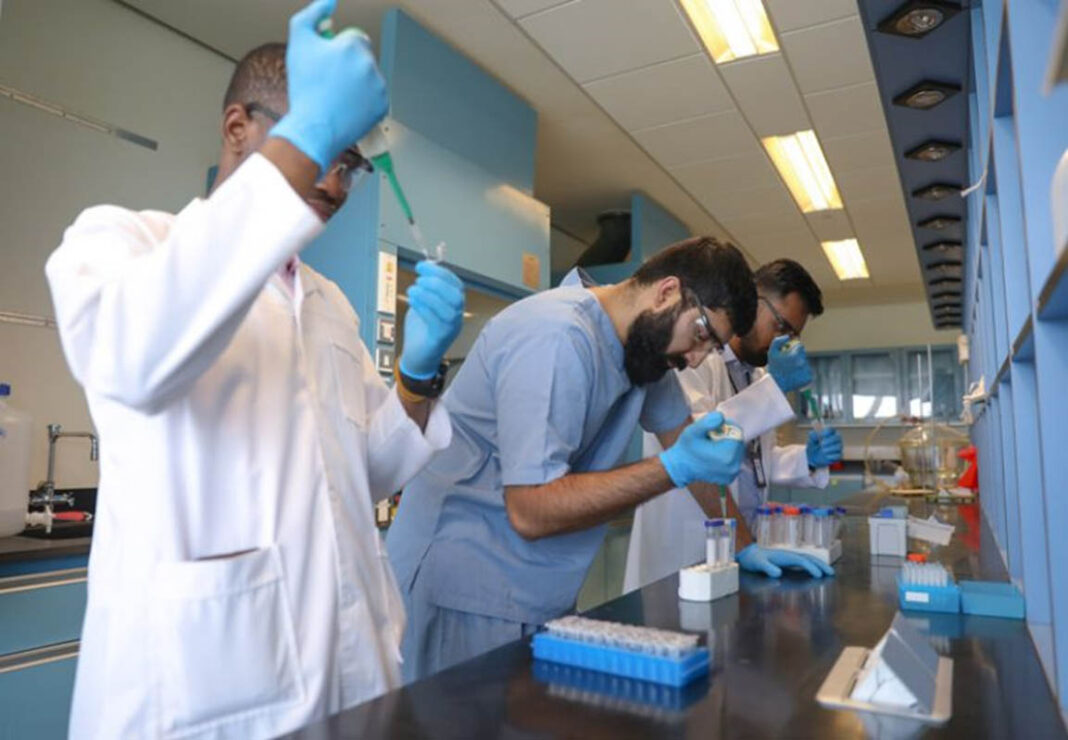By collaborating with industry and international research partners, Alfaisal University is working on the design of tomorrow’s world through product innovation, computer modelling and advanced materials
The search for new materials and the modes of production that will transform manufacturing requires industry and higher education to work in lockstep. The university that supports innovation on the factory floor will be rewarded in kind on campus, not only by offering faculty the opportunity to pursue impactful research, but by enhancing teaching and learning for its undergraduate students, too.
Led by Mutasem Abdel-Jawwad Shehadeh, associate professor of mechanical engineering at Alfaisal University, the Initiative for Advanced Manufacturing (AIAM) enhances its social impact through interdisciplinary collaborations and groundbreaking research projects guided by the needs of industry.
It is a broad-reaching initiative guided by strategic frameworks outlined in the government’s Saudi Vision 2030 and the United Nations Sustainable Development Goals.
The AIAM focuses primarily on advanced materials and manufacturing and how the university can support businesses through their digital transformations, consulting on product innovation, design, modelling and prototyping.
“The vision is very ambitious and very promising for the region as a whole,” Shehadeh says. “The university aligned itself so that our research and our initiatives can be aligned with this vision.”
It is a good time to be a researcher in Saudi Arabia. There is an appetite for change, for more efficient systems and new products that change the way we live. If the government paints this strategy in broad strokes, consumer demand helps Alfaisal and its industry partners fill in the blanks, working on products that consumers demand.
“It will require a lot of research on market needs,” Shehadeh says. “How to understand customers’ needs, and how to come up with concepts that will serve these needs, and then how to translate those needs into actual engineering products. This requires multidisciplinary activity, with people from both engineering and business working together to develop products that will be appreciated by the market.”
While many university-industry partnerships are research-based, brokered by academics for academics, Alfaisal involves undergraduate students too, with the AIAM also encompassing a teaching and learning dimension that gives students industry experience and the opportunity to develop the skills required of them in the workplace. “This will give students an insight into what is happening in the country,” Shehadeh says.
“I think it is very important to have these programmes where undergraduate students have these hands-on experiences through their connections with local industry. We are trying to introduce our students to industrial consultancy services. The students can go and search for a problem in a factory, assess it, and then come up with the solution. This is one of the things that excites me when talking about what we are doing with undergraduates here.”
Grounds for optimism
The digital transformation of industry, in which artificial intelligence and machine learning is augmenting production, is one of the AIAM’s key themes. How to bridge the gap between the physical and digital worlds is one of the big questions asked of industry in the 21st century, with concepts such as digital twinning offering a model for industry to harness the power of real-time data from simulations to inform the production process.
Shehadeh acknowledges that digital twinning is a work in progress. More must be learned before the concept reaches maturity and is commonplace across manufacturing. But there are grounds for optimism. Likewise in the field of materials for design, where research efforts are being accelerated by digital modelling.
Computer simulations are becoming more sophisticated and are changing how scientists understand novel materials and apply them in real-world contexts. By studying materials from an atomistic to microscopic scale, cataloguing their properties and how they react in different scenarios, scientists can conduct basic research in days that once might have taken decades with physical experiments.
“If we use the standard methodology – trial, error, have a recipe, test it in the lab – this will take forever,” Shehadeh says.
“Instead, maybe one can use these physics-based simulation tools at different scales to come up with at least guidance on where to go and which combination of materials should be used to create, say, a certain alloy that can be used in a specific application. This is one of the things that is fascinating in terms of basic research – and basic research leads to products if it succeeds.”
In addition to its industry partners, Alfaisal also works with various government ministries, leading research universities in Saudi Arabia such as King Abdulaziz City for Science and Technology, and with a number of international universities, too, including the University of Michigan, the University of Maryland, and the American University of Beirut, where Shehadeh spent 14 years as a professor of mechanical engineering.
“I want to also emphasise the international collaboration because these are problems that are interdisciplinary by nature,” he says. “No one person can fix them. You have to have groups; people who are theoreticians, people who are computational scientists and engineers, and people who are experimentalists to be able to come up with a concrete answer to some of the problems that we are facing.”
When such solutions are developed, perhaps for greener energy systems or sustainable manufacturing, the chances are they will have been seeded by innovation in the materials sector. Materials are fundamental to such progress.
“It influences everything else,” Shehadeh says. “Developing new materials will lead to advancement in technologies in different sectors, including medicine, aerospace and agriculture. It is very exciting. The applications in the future will be huge.”
Find out more about the Initiative for Advanced Manufacturing.














